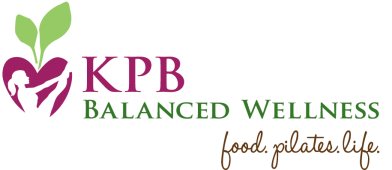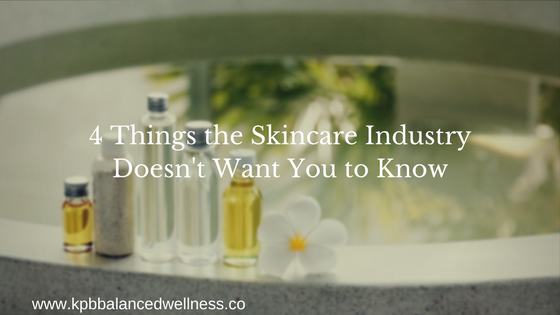For years now, I’ve had two basic rules that my skin care products have needed to fall under. Either it is something I could eat or it is a single ingredient that I can pronounce. The skincare industry is incredibly complicated and confusing to determine what is safe and what isn’t. So, I just gave up trying. Who has time to research all of that when your husband keeps moving you all over the entire U.S. and you have two little ones in tow? I mean, really.
The truth is the skincare industry is largely unregulated. If you think everything sitting on a shelf in Wal-Mart or even Whole Foods is perfectly safe, think again. Far from it. There are all of 2 pages of law regulating the entire $62 billion cosmetic and skincare industry. There are far more practices in place to protect the company’s and their shareholders than there are to protect you. This isn’t conspiracy theory, it is just fact.
When looking at labels, here are 4 things to consider:
- Natural, Organic, and Green
There is no regulation regarding these terms, virtually any ingredient can be listed under these labels. Unless it says USDA-certified organic, which actually has a set of standards, those terms could mean anything. This isn’t to say all products with these labels are trying to be deceptive. Many products are made with your health and safety in mind but for a myriad of reasons don’t have the full USDA organic label. Many products strive to source the majority of their ingredients from organic sources, but then are required by law to include preservatives. (Preservatives are required if your product includes water.) Look into the company. What is their mission, what is their purpose and are they open with their ingredient lists? Consider buying from smaller companies that are literally putting their heart and soul into their products.
- Safe
Safety standards are only accounted for in terms of short-term, acute reactions. Do the ingredients cause a rash, itching or irritation? If not, then it is considered safe. Known carcinogens, endocrine disruptors and other toxins are completely legal to include in U.S. skincare products, as long as they don’t cause an acute reaction. Countries outside of the U.S. have stricter standards than we do, forcing companies to make safer products to sell in those countries, but then selling the ‘dirty’ products to us here in the States. The European Union has banned over 1400 known carcinogens and endocrine disruptors from their skincare products. Canada has banned 600. The U.S. has banned 30. And that is up from 11 just a year ago.
- Fragrance
This is a loophole term. Anything listed under ‘fragrance’ is considered proprietary and allows a company to avoid disclosing any ingredients they consider part of the fragrance. Phthalates are often part of a fragrance. They are plasticizers and are considered one of the more toxic plastics. Phthalates are used to make the fragrance stick to your skin. Phthalates are known for blocking signaling pathways for hormones and have been linked to birth defects. This is one of the more difficult chemicals to avoid because it is rarely listed in the ingredients due it being considered proprietary since it is part of the fragrance.
- Paraben-Free
Manufacturers buy ingredients in bulk and often those ‘single’ ingredients have already been paired with a preservative, such as grapefruit seed extract with added methylparaben. When this happens, the company does not have to list the preservative that is combined with the grapefruit seed extract, so it can say that lucrative term, ‘paraben-free’. Even when it isn’t. Parabens are included to prevent the growth of bacteria and mold, however they come with a cost. Parabens mimic estrogen and may play a role in triggering cancer.
In the U.S., ingredients are considered safe until proven guilty.
That means we are the testing ground. These products and these ingredients are being tested on US. We are already seeing the consequences with increasing rates of cancer, autoimmune conditions, skin conditions, cardiovascular issues, fertility issues, digestive issues and detoxification issues. We can not wait for research to catch up with us to tell us what we already know. We have to take our health into our own hands and become really conscientious about what we are putting on our skin each and every day.
Swapping out your products, in the grand scheme of things, is one of the easiest steps you can take to support your own health. Look at your products in your bathroom, as you run out of each item, find alternative products to replace them with. I know this can be overwhelming. I was totally there. This is why I really fell in love with Beautycounter. Beautycounter solved a need for my family. I know they have done their due diligence to test the ingredients and I love that they are actively working for more regulation and transparency in the skincare industry in the United States. There are many clean skincare companies out there, but you do have to do your own research to make sure you are getting the product you think you are getting.
AFFILIATE LINK DISCLOSURE: Every now and again I include an affiliate link in my blog posts. If you choose to purchase through the link, I get a small commission which goes directly back to supporting my blog at no cost to you. I greatly appreciate your support in helping me continue blogging and I only ever recommend or link to a product I have direct experience with and love!



Well said! I have read the same information in a few different articles and it is sad that the US is behind in the cosmetic industry as well as in the food industry in what is required to assure all of us that what we put on our body is truly safe as well as what we eat is safe! good job Beauty Counter is to be commended for being proactive!